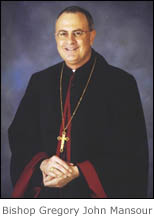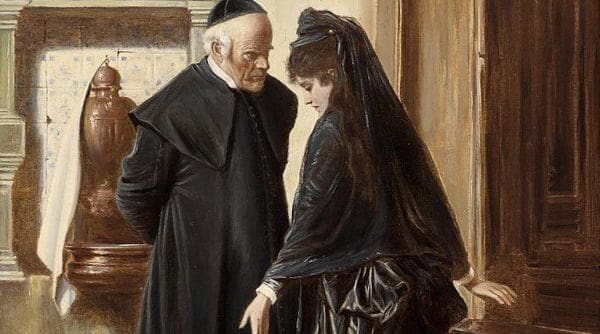 Bishop’s Perspective on Spiritual Direction
Bishop’s Perspective on Spiritual Direction
(Part II of III)
Editor’s Note: In Part I, Bishop Mansour introduced the concept of spiritual direction. In today’s post, he will briefly explore the purpose of spiritual direction.
The idea of spiritual direction is a monastic idea; it began with the desert fathers and continues in the Church as a spiritual form of mentoring. It is not a magic pill to make all discernment easy, but rather an important element to be joined to a life of prayer, devotion, liturgy, and friendship. Its main goal is to help one discern and live the will of God as generously as possible. Father Merton writes that if spiritual direction is to be genuine it requires a “normal and spontaneous human relationship” (p.19). Likewise, spiritual direction assumes freedom and generous trust on the part of both the director and the directee.
Father Merton defines spiritual direction as “a continuous process of formation and guidance, in which a Christian is led and encouraged in his special vocation, so that by faithful correspondence to the graces of the Holy Spirit he may attain to the particular end of his vocation and to union with God” (p.13).
A spiritual director is not a figure of authority that one is obliged to obey. Nor does he take the place of our superiors. The virtue to be exercised in spiritual direction is not obedience but rather docility. The person seeking direction ought to see his director as a spiritual father and as a special gift from Christ to guide and assist him.
The director does not have to be an expert. Some people waste their time and make excuses because the “right director” has not yet appeared. Good spiritual directors do not have to be experts, because most of the help one receives from spiritual direction comes through God’s grace and one’s own efforts at being honest with himself and his or her director.
Again, Father Merton writes: “Some who lament the fact that they cannot find a director actually have all the opportunities for direction they really need, but they are not pleased with the available director because he does not flatter their self-esteem or cater to their illusions about themselves” (p.30). It takes courage to face oneself in the presence of another person, but this is needed to advance in the spiritual life.
In an attempt to encourage me to be more honest with myself, one of my spiritual directors once told me, “There is only one difference between you and me; I have been in the woods searching for my own way longer than you.” This was quite helpful, and it is true. Every soul’s true spiritual director is the Holy Spirit, who “guides us in all truth” (Jn 16:13). Yet since we believe that grace builds on nature, we know that divine assistance requires human effort. As Father Merton wrote, “We are encouraged to develop our natural simplicity, sincerity, and forthright spiritual honesty” (p.6). Spiritual direction, more than anything else with the exception of annual silent retreats and close personal friends, helps us to “be ourselves” – that is, the person God created us to be.
Spiritual direction is not psychological counseling. Counseling is at times needed for matters that go deep into our personal history, such as experiencing the authority of our parents growing up; personal traumas and/or difficulties we have faced; and hurts, losses, or disappointments that are difficult to heal. Those who seek spiritual direction may also need counseling at one time or another.
The purpose of spiritual direction is the same as the purpose of personal prayer and liturgy: to develop within ourselves a more generous and liberating union with Christ and a lively eagerness to do the will of the Father.
In our final post I will take you behind the scenes to guidelines I have provided to the priests under my care who provide spiritual direction. This should provide some interesting perspective to priests, spiritual directors and directees.
+Bishop Gregory Mansour+
+
Art for this post on a bishop’s prespective: Photograph of Bishop Mansour, used with permission. Feature image art: Ein ernstes Gespräch (A Serious Conversation), Ludwig Johann Passini, by 1902, PD-US author’s life plus 100 years or less, Wikimedia Commons.




